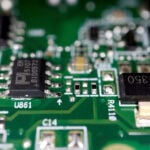Excoriation disorder, also called skin picking disorder, is a mental illness in which people can't stop picking at their skin, sometimes so badly that they draw blood and hurt themselves.. Research shows that skin picking provides momentary relief from difficult emotions and anxiety. This disorder is officially recognized as a type of obsessive-compulsive disorder (OCD) and body-focused repetitive behavior in the DSM-5 psychiatric manual.
Skin picking tends to be a chronic condition that is linked to underlying mental health issues like depression, anxiety, trauma, and body image issues. Although misunderstood, skin picking disorder causes great distress and impairment for millions of sufferers. With compassion, understanding, and proper treatment, those living with excoriation can find relief.
What motivates this harmful compulsion? Research suggests that excoriation disease could be connected to fundamental mental health concerns. According to the article, skin plucking can indicate various additional conditions. Research carried out in 2020 has confirmed a link between it and mental health conditions such as generalized anxiety and sadness.
Excoriation disorder has a strong connection to other medical conditions like inflammatory and autoimmune disorders. These pre-existing conditions may influence or even worsen the Excoriation disorder. The symptoms often exhibited include itching, rashes, and skin blisters, which might appeal to those who tend to pick at their skin.
Rheumatoid Arthritis (RA) is a prime example of an autoimmune disorder that causes painful inflammation in the joints. Prolonged sufferers may notice itching in the affected areas, possibly leading to skin plucking.
Lynn Carter has suffered from RA for three years. About a year ago, she noticed small red bumps developing on her knuckles and the backs of her hands - right where the RA inflammation was worst. "They itched like crazy," says Carter. "I started scratching them without really meaning to. Then I realized I was picking at them all the time."
Carter's "idle" picking soon left her knuckles bloody and raw. The wounds would seal up temporarily, only to be picked open again. "Even when they aren't itchy, I'll look down and realize I'm digging around under the scabs," Carter admits.
Lynn Carter is among those autoimmune patients who face challenges with skin picking. Lupus is a condition that has the potential to induce excoriation disorder via itching skin sores. Psoriasis, multiple sclerosis, type 1 diabetes, and other autoimmune illnesses are correlated with symptoms that are connected to skin picking.
Tracy Davidson, who was diagnosed with lupus five years ago, has a variety of scars on her arms and legs resulting from scratching at skin sores. "During the healing process, the itching can be quite intense," Davidson explains confidently. Unintentionally, I often catch myself itching. Occasionally, it may alleviate the itch, but it also hurts my skin. Subsequently, I experience regret for my lack of self-control.
In addition to physical effects like scarring and infections, excoriation disorder takes a psychological toll. Skin picking related to medical issues often carries feelings of shame and self-blame.
Davidson experiences guilt about her picking compulsion. "Rationally, I know it's the lupus causing the itch," she says. "But this voice still tells me I should have more self-control." Lynn Carter echoes Davidson's sentiments: "I beat myself up over being unable to keep my hands off my wounds."
Excoriation disorder can trap sufferers in a vicious shame/picking cycle. However, medical interventions and therapeutic strategies are available to relieve symptoms. Patients like Carter and Davidson can heal their skin with dual treatment and develop healthier coping strategies.
Creams and medication can ease inflammation and itching caused by autoimmune diseases, removing the source of irresistible picking urges. For example, Carter's rheumatologist prescribed a topical corticosteroid to apply to her inflamed knuckles. She states it significantly decreased the itching, resulting in a lessened want to scratch constantly.
Aside from addressing the root medical issues, cognitive behavioral therapy (CBT) effectively assists individuals in managing the mental compulsions associated with excoriation disease. Davidson has started meeting weekly with a CBT specialist. She is learning techniques to redirect her focus when the urge to pick strikes. "I'm getting better at catching myself before I start scratching," says Davidson. "If I do pick, I try to have compassion for myself instead of spiraling into shame."
With combined treatment, Carter and Davidson have found relief from incessant picking cycles. Their stories shed light on the complex roots of excoriation disorder - and how seemingly minor changes can help. "Before getting the steroid cream and doing therapy, I felt so hopeless and disgusted with myself," admits Carter. "Just having some support has helped me feel more in control."
If you or a loved one is dealing with an excoriation disorder linked to an underlying ailment, rest assured that there are ways to address this issue without enduring it quietly. Contact healthcare providers to address managing symptoms that trigger picking and cultivating more positive mental patterns.
Excoriation disorder can be triggered by physical sensations like itching and irritation, although the compulsion to pick at the skin is rooted in the mind. Participating in skin picking activates the brain's reward system, causing the production of hormones that enhance feelings of well-being and reinforce this behavior. It also provides momentary relief from difficult emotions.
"Skin picking is often described as addictive, a habit that can quiet anxiety or make feelings of sadness, anger, frustration, boredom, and loneliness temporarily disappear," notes John Gray, a cognitive behavioral therapist who treats patients with excoriation disorder. "Feeling out of control is also common. Sufferers report trying unsuccessfully to stop picking."
Some mental health conditions seem particularly linked to skin-picking compulsion. These include depression, ADHD, PTSD, anxiety disorders, body dysmorphic disorder, bipolar disorder, borderline personality disorder, and autism spectrum disorder. Skin plucking is most likely a coping mechanism individuals employ to manage the intense emotions associated with these diseases.
Like many compulsions, excoriation disorder often starts during childhood or adolescence. "I can remember picking small scabs and bumps on my arms even before reaching my teens," says Alicia Morris, now 32. "It was just an absent-minded thing I would do without deciding to. Over time, it became more conscious."
Morris recalls clearly when her skin picking graduated from mild to problematic: "I was maybe 14 when I started really struggling with anxiety," she explains. "Picking my skin helped calm me down when I felt overwhelmed. It turned into an escape - almost addictive."
Over the next decade, Morris tried to stop picking many times, throwing out tweezers and bandaging her fingers. But the urges always came roaring back. "I thought it was a personal failing, that I lacked self-control," she says. "Now I know it was a coping mechanism I relied on, even though it hurt me."
Research suggests that genetics may play a role in excoriation disorder. Having a first-degree relative with skin-picking tendencies or OCD raises your risk. Morris recalls her mother working on minor imperfections on her face in front of the mirror. "I think observing that behavior normalized it for me from a young age," she reflects.
Studies have uncovered shared genetic markers in families with multiple skin pickers. There also seems to be a hereditary link between excoriation disorder and some of the associated mental health conditions like OCD and body dysmorphic disorder. However, more research is needed to clarify genetic involvement.
Excoriation disorder occurs more commonly in women than men. Studies estimate anywhere from 70 to 93 percent of those seeking treatment are female. This aligns with higher rates of anxiety disorders and depression among women - possible driving factors behind skin picking.
Interestingly, men and women tend to pick different areas. Women predominantly pick their face and hands, while men focus more on their arms, torso, scalp, and face. Males are also more likely to pick at skin irregularities like acne, scars, and calluses.
Social and cultural pressures also may contribute to excoriation disorder - especially for women. "Images of flawless skin and appearance are ubiquitous through media images and social media," points out dermatologist Trisha Ray. "This absolutely influences body image issues and picking behaviors meant to 'fix' perceived flaws."
Different cultural beauty standards worldwide impact how, where, and why people pick skin. For example, compared to Western cultures, people in African nations pick more at raised bumps and scars meant to enhance beauty.
Regardless of origin, excoriation disorder causes distress and impairment for millions. Although a misunderstood condition, effective treatment options exist through both therapy and medication.
Cognitive behavioral therapy helps patients identify emotional triggers for skin picking while developing healthier thought patterns. Habit reversal training is another therapeutic technique using awareness and competing response training to manage picking urges.
Medications like SSRIs, opiate antagonists, and glutamate modulators may also curb compulsive skin picking, especially when paired with therapy.
While excoriation treatment varies by individual, a combination approach focused on both mind and body shows the most promise, according to research. "Through therapy, I better understand why I pick and can catch myself before starting," says Morris. "Plus, medication helps control the intense urges to pick that feel completely involuntary."
As awareness and research around excoriation disorder grow, better treatment options emerge. "We now recognize that picking behaviors exist on a spectrum," says Ray. "From mild to severe, appropriate help is available."
Further understanding of genetic involvement, gender differences, and mental health connections will pave the way for more targeted treatment. "I used to think I was just weak-willed," admits Morris. "I'm grateful more people acknowledge skin picking as a real disorder instead of a personal flaw."
Removing the stigma around this challenging condition means less shame and isolation for sufferers. "I no longer have to hide my scars or beat myself up when I slip into old habits," concludes Morris. "Progress happens slowly, but it does happen."
The future looks hopeful for the millions finding secret relief and comfort in skin-picking routines. With compassion and care from professionals and self-acceptance, healthy skin and minds are within reach.

 US wine shops and importers say Trump's threatened 200% tariff on European wines would kill demand
US wine shops and importers say Trump's threatened 200% tariff on European wines would kill demand
 Haiti gangs set fire to building once home to nation's oldest radio station
Haiti gangs set fire to building once home to nation's oldest radio station
 UAE to push for easier access to US chip technology, Blooomberg News reports
UAE to push for easier access to US chip technology, Blooomberg News reports
 Miami Beach mayor wants to end lease of independent theater that screened Palestine documentary
Miami Beach mayor wants to end lease of independent theater that screened Palestine documentary
 USPS signs agreement with Elon Musk's DOGE team for assistance
USPS signs agreement with Elon Musk's DOGE team for assistance
 Jordan Spieth shows there's rarely a dull moment with his game at The Players
Jordan Spieth shows there's rarely a dull moment with his game at The Players
 Kering appoints Demna as Gucci's artistic director
Kering appoints Demna as Gucci's artistic director








